This section is for paid subscribers only. Our subscription is only $3700/- for one full year.
You get unlimited access to all paid section and features on the website with this subscription.
26February

26 Feb 1978
read less
Cinemaazi remembers Devendra Goel on his death anniversary
Remembering producer-director Devendra Goel on the occasion of his death anniversary. Born in Meerut on 3 March, 1919, he is known for directing films such as Aankhen (1950), Adaa (1951), Aas (1953), Albeli (1955), Narsi Bhagat (1957), Ek Saal (1957), Chirag Kahan Roshni Kahan (1959), Razia Sultana (1961), Pyaar Ka Sagar (1961), Door Ki Awaaz (1964), Dus Lakh (1966), Ek Phool Do Maali (1969), Dharkan (1972), Ek Mahal Ho Sapno Ka (1975), Aadmi Sad...
read more
Remembering producer-director Devendra Goel on the occasion of his death anniversary. Born in Meerut on 3 March, 1919, he is known for directing films such as Aankhen (1950), Adaa (1951), Aas (1953), Albeli (1955), Narsi Bhagat (1957), Ek Saal (1957), Chirag Kahan Roshni Kahan (1959), Razia Sultana (1961), Pyaar Ka Sagar (1961), Door Ki Awaaz (1964), Dus Lakh (1966), Ek Phool Do Maali (1969), Dharkan (1972), Ek Mahal Ho Sapno Ka (1975), Aadmi Sadak Ka (1977), Do Musafir (1978), and the Marathi film Dost Asava Tar Asa (1978). Om Prakash won the Filmfare Award for Best Comedian and Asha Bhosle won the Best Playback Singer Award for Dus Lakh. Many of his films featured memorable music by Ravi. Devendra Goel passed away on 26 February, 1978.

26 Feb 1937
Cinemaazi remembers Manmohan Desai on his birth anniversary
There is something about his films that keeps you glued to the screen. A recurring theme in many of his films was the importance of family and his favourite trope to underline this was the ‘lost-and-found’ plot.Cinemaazi salutes the champion of Masala films, Manmohan Desai, on his birth anniversary.
There is something about his films that keeps you glued to the screen. A recurring theme in many of his films was the importance of family and his favourite trope to underline this was the ‘lost-and-found’ plot.Cinemaazi salutes the champion of Masala films, Manmohan Desai, on his birth anniversary.

26 Feb 1922
Cinemaazi remembers Manmohan Krishna on his birth anniversary
One of the most fondly remembered character actors of Hindi cinema, Manmohan Krishna was born in pre-Independence Lahore in 1922. While he went on to become a prolific actor, Manmohan Krishna spent his early career as a Lecturer of Physics in Rajakiya Vidyalaya in Lahore. But while teaching, he also harboured a desire for a career in the radio. Armed with a magnetic personality, an impressive voice, and his debate skills, he travelled to Bombay t...
read more
One of the most fondly remembered character actors of Hindi cinema, Manmohan Krishna was born in pre-Independence Lahore in 1922. While he went on to become a prolific actor, Manmohan Krishna spent his early career as a Lecturer of Physics in Rajakiya Vidyalaya in Lahore. But while teaching, he also harboured a desire for a career in the radio. Armed with a magnetic personality, an impressive voice, and his debate skills, he travelled to Bombay to give an interview– a journey that decided his acclaimed career in cinema. A chance meeting with the legendary filmmaker V Shantaram at a party opened the gates of the film industry for him.
read less
25February
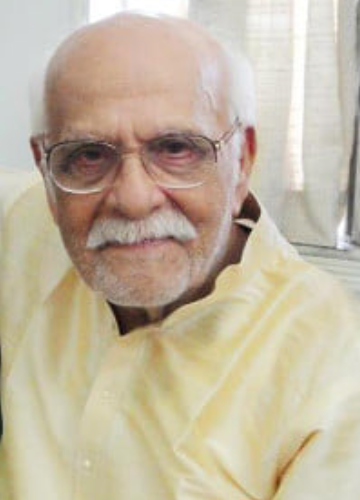
25 Feb 2015
Cinemaazi remembers A Vincent on his death anniversary
Leaving his mark in Tamil, Telugu, Malayalam and Hindi cinema, A VIncent was an acclaimed cinematographer and director. A Filmfare Award winner as a cinematographer, he has also directed many successful Malayalam films.
Leaving his mark in Tamil, Telugu, Malayalam and Hindi cinema, A VIncent was an acclaimed cinematographer and director. A Filmfare Award winner as a cinematographer, he has also directed many successful Malayalam films.
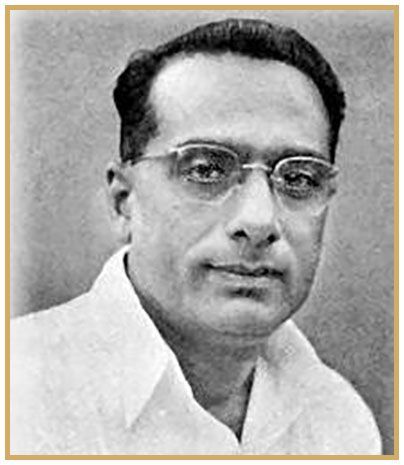
25 Feb 2004
Cinemaazi remembers B Nagi Reddy on his death anniversary
Founder of the legendary Vijaya Vauhini studios, B Nagi Reddy played a pioneering role in the foundation of the film industry in Chennai. Along with Aluri Chakrapani, he took over Vauhini Studios and merged it with his Vijaya Pictures. Known for producing elaborate melodramas, the studio produced several of L V Prasad and K V Reddy's films. Some of the notable films are Shavukaru (1950), Pathala Bhairavi (1951), Pelli Chesi Chhodu (1952), Mis...
read more
Founder of the legendary Vijaya Vauhini studios, B Nagi Reddy played a pioneering role in the foundation of the film industry in Chennai. Along with Aluri Chakrapani, he took over Vauhini Studios and merged it with his Vijaya Pictures. Known for producing elaborate melodramas, the studio produced several of L V Prasad and K V Reddy's films. Some of the notable films are Shavukaru (1950), Pathala Bhairavi (1951), Pelli Chesi Chhodu (1952), Missamma (1955), Mayabazar (1957), Appu Chesi Pappu Koodu (1959), Gundamma Katha (1959) and many more. Also making a foray in Hindi cinema, he produced Ram Aur Shyam (1967), Ghar Ghar Ki Kahani (1970), Julie (1975), Swarg Narak (1978), Swayamvar (1980) among others. Hunsur Krishnamurthy's Madhuve Madi Nodu (1965) won the national Award for Best Feature Film in Kannada. He also served twice as the President of the Film Federation of India in the 60s. Cinemaazi remembers him on his death anniversary.
Image courtesy: https://m.sakshi.com/tags/b-nagi-reddy
read less
Image courtesy: https://m.sakshi.com/tags/b-nagi-reddy
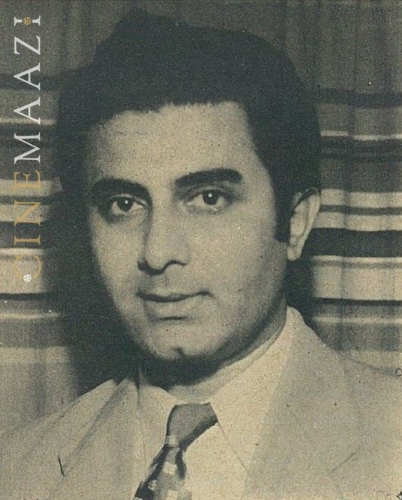
25 Feb 1992
Cinemaazi remembers Manhar Desai on his death anniversary
Remembering actor Manhar Desai on the occasion of his death anniversary. Hailing from a Gujarati Christian family of Ahmedabad, he was born Malcom Alfredo Desai on 3 August, 1917 in Bombay. Eager to pursue a career in films, his first brush with acting was less than satisfactory: he played the stunt double for the hero in riding sequences. Returning to college disillusioned, he pursued several jobs after graduating, till he landed lead acting rol...
read more
Remembering actor Manhar Desai on the occasion of his death anniversary. Hailing from a Gujarati Christian family of Ahmedabad, he was born Malcom Alfredo Desai on 3 August, 1917 in Bombay. Eager to pursue a career in films, his first brush with acting was less than satisfactory: he played the stunt double for the hero in riding sequences. Returning to college disillusioned, he pursued several jobs after graduating, till he landed lead acting roles. From Toofani Sawar (1947) to the Gujarati hit Gunsundari (1948), it was the start of a successful innings. Other hits in his kitty include Naseebdar (1950) and Gadano Bel (1950). He made his Hindi film debut with the Wadias’ Madhosh (1951) opposite Meena Kumari. Among his most popular films are Naya Rasta (1953), Anand Bhuvan (1953), Hazaar Raaten (1953), Nag Panchami (1953), Chandramukhi (1960), Madhosh (1951) and Banjarin (1960). Manhar Desai passed away on 25 February, 1992.
read less
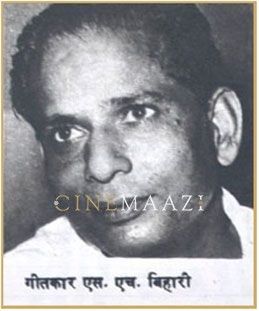
25 Feb 1987
Cinemaazi remembers S H Bihari on his death anniversary
A writer of many hit songs, yet sadly under-appreciated, S H Bihari passed away on this day in 1987.
A writer of many hit songs, yet sadly under-appreciated, S H Bihari passed away on this day in 1987.

25 Feb 1974
Cinemaazi remembers Divya Bharti on her birth anniversary
Touted as the next Sridevi of Indian cinema, Divya Bharti achieved a great deal of success in a short period of time, before her life was tragically cut short.
Touted as the next Sridevi of Indian cinema, Divya Bharti achieved a great deal of success in a short period of time, before her life was tragically cut short.
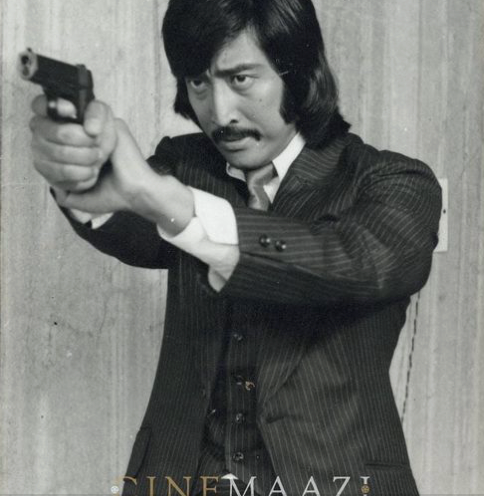
25 Feb 1948
Cinemaazi wishes Danny Denzongpa a very happy birthday!
Be it a classy villain, a character with shades of grey or a positive role, Danny Denzongpa excelled in all. Cinemaazi wishes him a very happy birthday!
Be it a classy villain, a character with shades of grey or a positive role, Danny Denzongpa excelled in all. Cinemaazi wishes him a very happy birthday!
24February
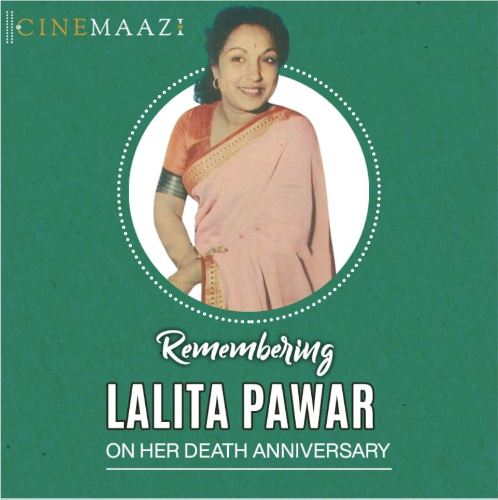
24 Feb 1998
Cinemaazi remembers Lalita Pawar on her death anniversary
Starting off as a child artiste and then as a heroine, Lalita Pawar's career as a lead was tragically cut short due to an accident. Undeterred by this turn of events, she went on to become arguably the greatest villainous matriarch of Hindi cinema. Today is her death anniversary.
Starting off as a child artiste and then as a heroine, Lalita Pawar's career as a lead was tragically cut short due to an accident. Undeterred by this turn of events, she went on to become arguably the greatest villainous matriarch of Hindi cinema. Today is her death anniversary.
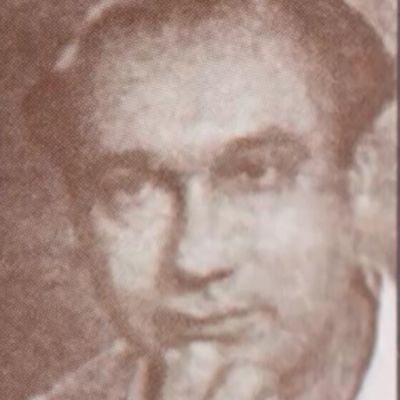
24 Feb 1984
Cinemaazi remembers Sanmukh Babu Upadhyay on his death anniversary
Today we remember music director Sanmukh Babu Upadhyay on the occasion of his death anniversary. Born in Surat, Gujarat in 1920, he went on to become a disciple of Pandit Omkarnath Thakur. An expert violin and jaltarang player, he along with his elder brother, would compose music for Gujrati plays. Moving to Bombay in 1942, he worked at All India Radio Bombay for a few years before joining Avinash Vyas as an assistant. Starting with the film Lalk...
read more
Today we remember music director Sanmukh Babu Upadhyay on the occasion of his death anniversary. Born in Surat, Gujarat in 1920, he went on to become a disciple of Pandit Omkarnath Thakur. An expert violin and jaltarang player, he along with his elder brother, would compose music for Gujrati plays. Moving to Bombay in 1942, he worked at All India Radio Bombay for a few years before joining Avinash Vyas as an assistant. Starting with the film Lalkar (1956), he went on to compose music for Amar Singh Rathaur (1957), Naag Padmini (1957), Sati Pariksha (1957), Raaj Pratigya (1958), Amar Prem (1960) and Hameer Hath (1964), which was the last film he scored music for. Working mainly in the realm of historicals and devotional films, his songs were rendered by singers such as Manna Dey, Asha Bhosle, Suman Kalyanpur, and Mubarak Begum. While he was not engaged by the bigger banners, he nevertheless scored music that was melodious and appreciated. Sanmukh Babu Upadhyay passed away on 24 February, 1984.
Image courtesy: https://www.youtube.com/watch?v=__z4sxvolJc
read less
Image courtesy: https://www.youtube.com/watch?v=__z4sxvolJc
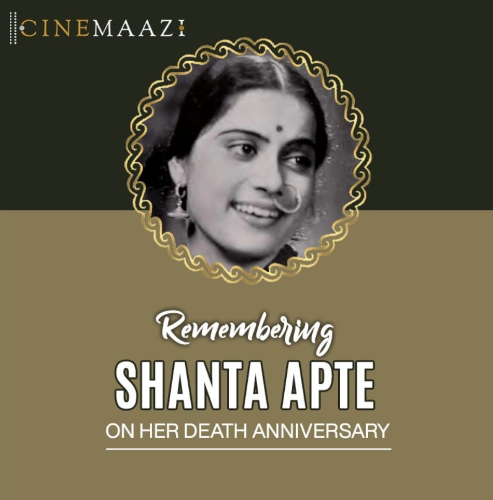
24 Feb 1964
Cinemaazi remembers Shanta Apte on her death anniversary
A trailblazing singer-actress of her times, Shanta Apte even led a hunger strike outside the gates of Prabhat when the company withheld her pay. Today is her death anniversary.
A trailblazing singer-actress of her times, Shanta Apte even led a hunger strike outside the gates of Prabhat when the company withheld her pay. Today is her death anniversary.
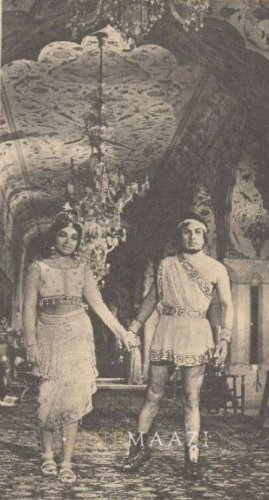
24 Feb 1948
Cinemaazi remembers Jayalalithaa on her birth anniversary
Few individuals can claim to be as iconic in the cultural and political history of a state as Jayalalitha. On her birth anniversary look back on her career here.
Few individuals can claim to be as iconic in the cultural and political history of a state as Jayalalitha. On her birth anniversary look back on her career here.
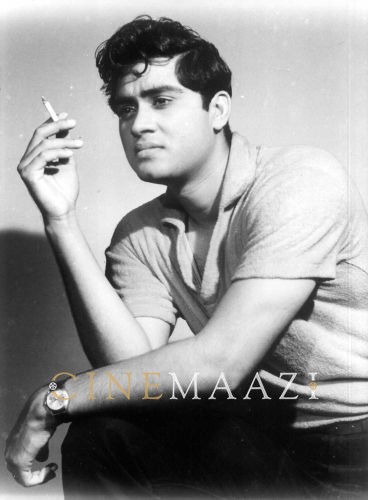
24 Feb 1939
Cinemaazi Remembers Joy Mukherjee on his birth anniversary
Cinemaazi remembers the original ‘Chocolate Boy’ of Hindi cinema, Joy Mukherjee, on his birthday (24 February 1939). Son of producer Sashadhar Mukherjee, Joy charmed the country with his handsome looks in romantic comedies and soon came to be compared with Hollywood’s golden-era “heartthrob” Rock Hudson.
Cinemaazi remembers the original ‘Chocolate Boy’ of Hindi cinema, Joy Mukherjee, on his birthday (24 February 1939). Son of producer Sashadhar Mukherjee, Joy charmed the country with his handsome looks in romantic comedies and soon came to be compared with Hollywood’s golden-era “heartthrob” Rock Hudson.
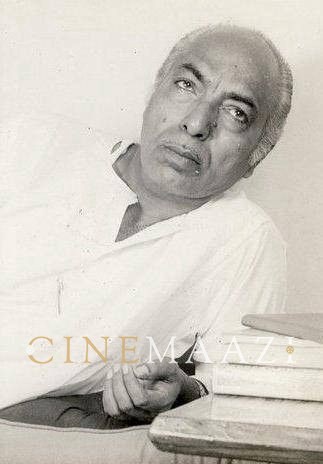
24 Feb 1928
Cinemaazi remembers Naqsh Lyallpuri on his birth anniversary
Cinemaazi remembers Naqsh Lyallpuri, born as Jaswant Rai Sharma, on his birth anniversary (24 February, 1928). In his career spanning over five decades, he worked with around 140 music composers leaving behind a small but meaningful legacy.
Though he got his first break in 1952 with the film Jaggu as a song writer, real success eluded him till the early 1970’s. After getting appreciation for his songs in the films like Madhu (1959) an...
read more
Cinemaazi remembers Naqsh Lyallpuri, born as Jaswant Rai Sharma, on his birth anniversary (24 February, 1928). In his career spanning over five decades, he worked with around 140 music composers leaving behind a small but meaningful legacy.
Though he got his first break in 1952 with the film Jaggu as a song writer, real success eluded him till the early 1970’s. After getting appreciation for his songs in the films like Madhu (1959) and Teri Talaash Mein (1968), His songs in the film Chetna (1970) composed by Sapan Jagmohan and sung by Mukesh were his first colour hit. His second hit was the ghazal ‘Rasme ulfat ko nibhayen…’ in the film Dil ki Raahein (1973) sung by Lata Mangeshkar. This song gave him the standing he deserved in the industry and led him to sign many films.
His other popular songs are: “Pyar Ka Dard Hai” (Dard, 1981), “Chitthiye Ni” (Henna, 1991), “Maana Teri Nazar Mein Tera Pyar Hum Nahi” (Ahista Ahista, 1981), “Yeh Wahi Geet Hai Jisko Maine” (Man Jaiye, 1972), “Har Janam Mein Hamara Milan (Kagaz Ki Naao, 1975), “Tumhein Dekhti Hoon” (Tumhare Liye, 1978), “Yeh Mulakaat Ik Bahana Hai” (Khandaan, 1979), “Chori Chori Koi Aaye” (Noorie, 1979), “Na Jane Kya Hua Jo Tu Ne Chhoo Liya” (Dard, 1981), “Ulfat Mein Zamane Ki” (Call Girl, 1974), “Apni Aankhon Mein Basaa Kar” (Thokar, 1974), “Tumhein Ho Na Ho” (Gharonda, 1977), “Chandni Raat Mein” (Dil-E-Nadan, 1982) and “Teri Talash Mein” (Teri Talash Mein, 1968). Due to the strong competition, he was relegated to ‘B-grade’ films and, later, Punjabi cinema.
At the age of 88 years, he had a fall which resulted in a hip-bone fracture. He never recovered from that and passed away a year later on 22 January 2017.
His life journey was beset with hurdles but he faced them bravely. According to Naqsh Lyallpuri his life could be summed up in this line:
‘Main woh diya hoon jise aandhiyon ne pala hai…bujha na paaoge ae waqt ki hawaaon mujhko’
read less
Though he got his first break in 1952 with the film Jaggu as a song writer, real success eluded him till the early 1970’s. After getting appreciation for his songs in the films like Madhu (1959) and Teri Talaash Mein (1968), His songs in the film Chetna (1970) composed by Sapan Jagmohan and sung by Mukesh were his first colour hit. His second hit was the ghazal ‘Rasme ulfat ko nibhayen…’ in the film Dil ki Raahein (1973) sung by Lata Mangeshkar. This song gave him the standing he deserved in the industry and led him to sign many films.
His other popular songs are: “Pyar Ka Dard Hai” (Dard, 1981), “Chitthiye Ni” (Henna, 1991), “Maana Teri Nazar Mein Tera Pyar Hum Nahi” (Ahista Ahista, 1981), “Yeh Wahi Geet Hai Jisko Maine” (Man Jaiye, 1972), “Har Janam Mein Hamara Milan (Kagaz Ki Naao, 1975), “Tumhein Dekhti Hoon” (Tumhare Liye, 1978), “Yeh Mulakaat Ik Bahana Hai” (Khandaan, 1979), “Chori Chori Koi Aaye” (Noorie, 1979), “Na Jane Kya Hua Jo Tu Ne Chhoo Liya” (Dard, 1981), “Ulfat Mein Zamane Ki” (Call Girl, 1974), “Apni Aankhon Mein Basaa Kar” (Thokar, 1974), “Tumhein Ho Na Ho” (Gharonda, 1977), “Chandni Raat Mein” (Dil-E-Nadan, 1982) and “Teri Talash Mein” (Teri Talash Mein, 1968). Due to the strong competition, he was relegated to ‘B-grade’ films and, later, Punjabi cinema.
At the age of 88 years, he had a fall which resulted in a hip-bone fracture. He never recovered from that and passed away a year later on 22 January 2017.
His life journey was beset with hurdles but he faced them bravely. According to Naqsh Lyallpuri his life could be summed up in this line:
‘Main woh diya hoon jise aandhiyon ne pala hai…bujha na paaoge ae waqt ki hawaaon mujhko’

24 Feb 1925
Cinemaazi remembers S Mohinder on his birth anniversary
Composer S Mohinder had a fascinating journey in cinema, experiencing both great highs and lows. A National Award winning composer, he worked primarily in the 50s and 60s. He was born on this day in 1925 in Silwala.
Composer S Mohinder had a fascinating journey in cinema, experiencing both great highs and lows. A National Award winning composer, he worked primarily in the 50s and 60s. He was born on this day in 1925 in Silwala.

24 Feb 1924
Cinemaazi remembers Shahenshah-e-Ghazal Talat Mahmood on his birth anniversary
Known popularly as the Shahenshah-e-Ghazal (King of Ghazals) of Hindi cinema, Talat Mahmood is still remembered for his remarkably velvety, soulful voice. For his scores of fans, some of them even international, his voice with its distinct quiver continues to resound in the immortal melodies of many of the best composers of his day.
Known popularly as the Shahenshah-e-Ghazal (King of Ghazals) of Hindi cinema, Talat Mahmood is still remembered for his remarkably velvety, soulful voice. For his scores of fans, some of them even international, his voice with its distinct quiver continues to resound in the immortal melodies of many of the best composers of his day.

24 Feb 1904
Cinemaazi remembers K Narayan Kale on his birth anniversary
Cinemaazi remembers the eminent thespian-filmmaker K Narayan Kale (Keshav Narayan Kale) on his birth anniversary. As a journalist, he often commented upon the Marathi literary and theatre world. He co-founded the theatre group Natyamanwantar. A man who dabbled in many forays of filmmaking, he joined cinema as an actor, then moved to Prabhat as a scenarist, wrote the dialogues and lyrics in Dharmatma (1935), Chadrasena (1935), and Amar Jyoti...
read more
Cinemaazi remembers the eminent thespian-filmmaker K Narayan Kale (Keshav Narayan Kale) on his birth anniversary. As a journalist, he often commented upon the Marathi literary and theatre world. He co-founded the theatre group Natyamanwantar. A man who dabbled in many forays of filmmaking, he joined cinema as an actor, then moved to Prabhat as a scenarist, wrote the dialogues and lyrics in Dharmatma (1935), Chadrasena (1935), and Amar Jyoti (1936). As a director, he is credited with films such as Mazha Mulga (1938), Lapandav (1940), and Ammaldar (1953). He also contributed to the discipline of film theory in India. He was the first appointed professor for the Film Appreciation course in the Film and Television Institute of India in the early 1960s.
read less




